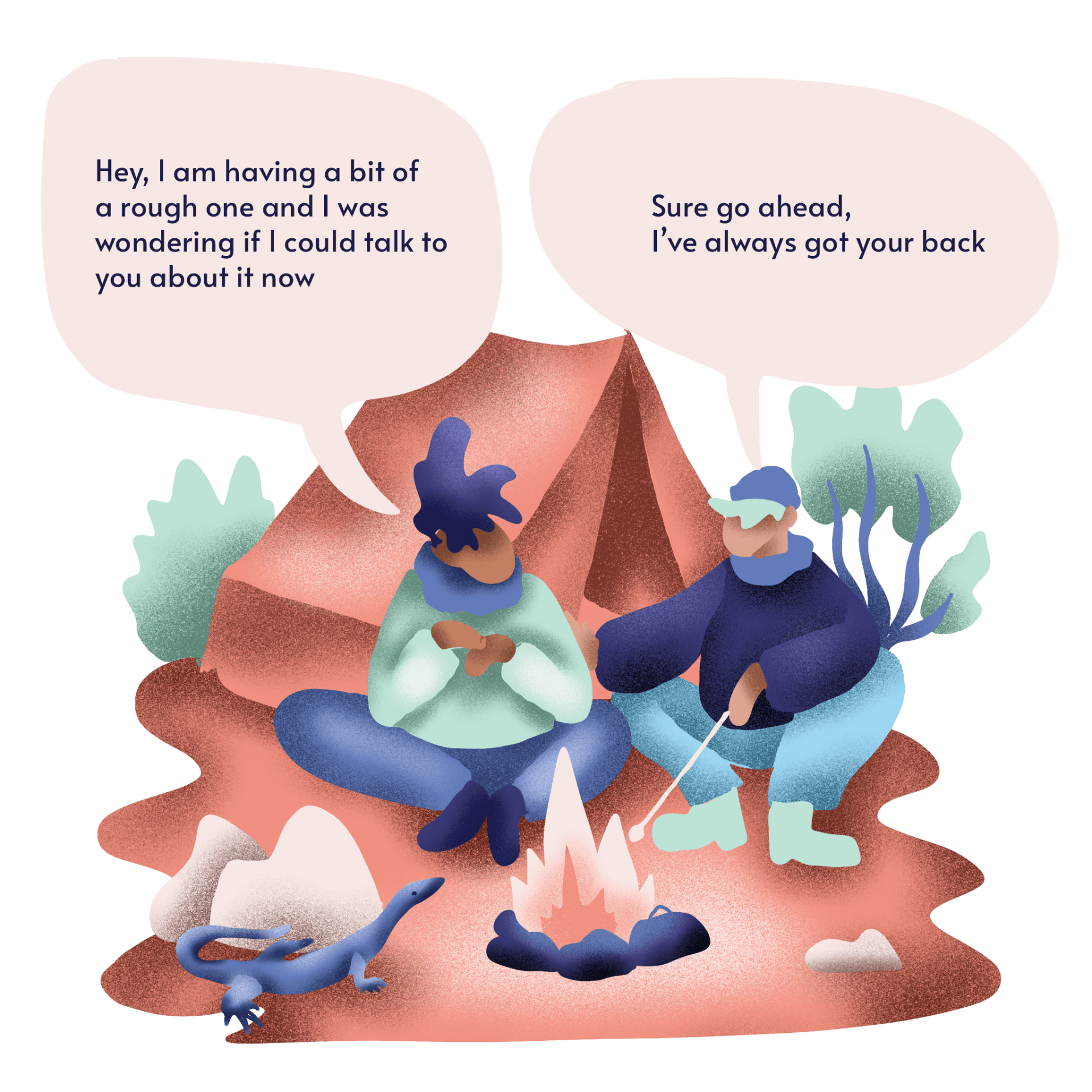Starting a conversation
The NT Risk Assessment and Management Framework (RAMF) sets out the roles and responsibilities of the service sector in relation to DFV.
When starting a conversation, we first need to know what role we play.
People without specialist training in DFV are called 'generalists' or 'universal services'.
What is your role?
Generalists need to know how to identify, ask, respond to a disclosure, determine risk and if the mandatory reporting obligation has been enlivened, refer to other organisations for specialist assistance, and document.

Identifying and asking about DFV
There are many ways to start a conversation of this kind. Some things will depend on your own understanding of the young people you are working with.
It’s good to find a private time and place where you are unlikely to be interrupted.
We’ve provided some examples of general scripts, but this conversation is best done using your own words. Sometimes practising out loud can help you feel comfortable. These conversations are not ones we ever expect to have, so it’s only natural to feel nervous and uncomfortable about beginning to speak about abuse.
It can also be helpful to start the conversation by providing a ‘lead in’ statement, before moving on to specific questions.
For example:
- "Violence affects many families and can have serious health impacts which is why we routinely ask our patients about safety in their relationship.”
- “I noticed that you appear to be experiencing some stress, is there something worrying you?”
Once you have started the conversation, you might move to more specific questions, for example:
- "Has anyone in your family done something to make you or your children feel unsafe or afraid?"
- "Have they controlled your day-to-day activities (e.g. who you see, where you go) or put you down?"
- "Have they threatened to hurt you in any way?"
For more information about continuing the conversation, go to our
Responding to a Disclosure page.
National Helplines: